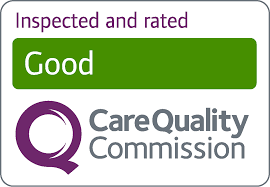Cerebral Palsy Care at Home
Cerebral Palsy relates to a group of lifelong conditions that affect movement and co-ordination caused by a problem with the brain before, during or soon after birth such as the brain not getting enough oxygen, bleeding in the baby’s brain, an infection caught by the mother during pregnancy, meningitis or a serious head injury but it is not always clear.
The symptoms also won’t usually be obvious straight away and will become more noticeable during their first years such as not reaching development milestones, seeming too stiff or floppy, weak arms and legs, clumsy or jerky movements, walking on tiptoes and other problems such as swallowing, speaking, vision and learning disabilities. The severity of symptoms varies greatly so the impact of cerebral palsy on someone’s life may be a little or a lot.
There are five different types of cerebral palsy – spastic, mixed, athetoid, hypotonic and ataxic. Around 77% of cases are spastic – which is caused by damage to the brain’s motor cortex which is responsible for voluntary movement. Most people with this type experience high muscle tone and exaggerated jerky movements.
What does Cerebral Palsy care consist of?
Because the effects of cerebral palsy are so varied by individual, our cerebral palsy care is tailored to the individual. It is not a condition where a ‘one size fits all’ approach is appropriate and our approach to care is always to tailor our care to the individual and their needs.
We’ll always make sure to check where you want and do not want assistance and will always support you to carry out tasks independently if you feel able or to and only step in when needed. When we complete a home care assessment, we’ll be able to create a tailored care plan based on your needs.
We can provide a range of support such as helping with everyday tasks around the home such as cleaning, cooking and personal care as well as errands such as collecting prescriptions and getting to hospital appointments.
We’re also able to support with practising physiotherapy and speech therapy exercises at home, administering medication and preparing food so it is easier to swallow.
If cerebral palsy makes it difficult to communicate, our cerebral palsy carers will work with you to communicate in the best way that suits you.
Get In TouchTypes of care

Live-in care
From general housekeeping, meal preparation and companionship through to personal care and more complex needs, Novus Care can help.
Learn more about Live-in care

Visiting care
From general housekeeping, meal preparation and companionship through to personal care and more complex needs, Novus Care can help.
Learn more about Live-in care

Dementia care
From general housekeeping, meal preparation and companionship through to personal care and more complex needs, Novus Care can help.
Learn more about Live-in care












